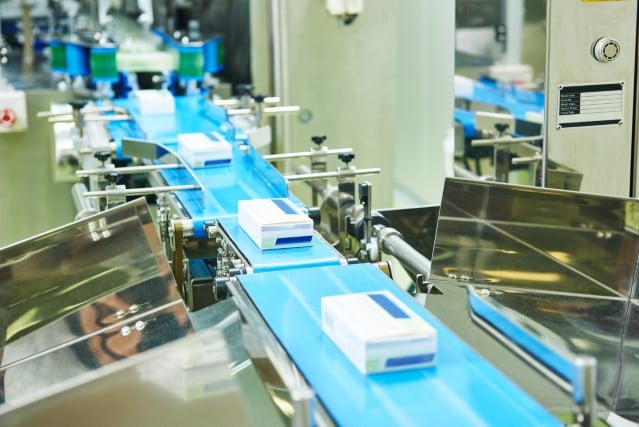Business continuity of healthcare companies is being significantly challenged and there are serious risks of supply chain disruption due to the global Covid-19 emergency. It is critical that companies assess, manage and control these risks to ensure continuity of supply.
Supply Chain and Regulatory
COVID-19, which is caused by the coronavirus, has had a major global impact since its outbreak in China in December 2019. Immediate concerns are for the well-being of employees globally and a focus on business continuity planning.
The European Medicines Agency (EMA) have issued guidelines surrounding ensuring continuity of supply of medicines in light of ongoing shortages during the current pandemic (1). Whilst respecting regulatory requirements, flexible and pragmatic measures have been implemented by global regulators to prevent any supply disruption. These areas include inspections of GMP manufacturing facilities, pharmacovigilance corrective and preventative action plans, audits and the validity of GMP certificates. Although regulatory authorities globally are working to keep approval of drugs moving, the impact of COVID-19 is clearly demonstrated by the change in commercial launch plans due to the pandemic. Many big pharma companies in the US have postponed launch plans and expect further delays to the approval of their drugs in the future.
Regulatory agencies across the globe have aligned themselves on the design of phase 3 trials for the development of COVID-19 vaccines (2). Phase 3 testing for COVID-19 vaccines will primarily involve demonstrating efficacy and safety of the vaccine. There was agreement across the board that clinical trials should be designed with stringent success criteria in order to demonstrate the efficacy of the vaccines. In Europe Johnson & Johnson released a statement announcing they would be starting Phase 1/2a trials for their COVID-19 vaccine in the second half of July. In addition, EMA has put in place a program to monitor efficacy and safety of COVID-19 vaccines used on a day to day basis in clinical settings. The goal is to be readily prepared to monitor vaccines once they are authorized for use.
The EMA has finalised 17 scientific advice procedures to give guidance for drug developers for COVID-19 related medicines. It is reported that there are 38 potential vaccines in development with an additional 154 treatments in development also for COVID-19 (3). These treatments range from immunomodulators to antivirals. For vaccine development, it is estimated that we may see approval of the first vaccine for COVID-19 by Q1 of 2021, however it is difficult to predict this precisely. There will be additional challenges following approval in order to ensure continuity of supply, including scale up and commercial manufacturing volumes. The EMA has finalised 17 scientific advice procedures to give guidance for drug developers for COVID-19 related medicines. It is reported that there are 38 potential vaccines in development with an additional 154 treatments in development also for COVID-19 (3). These treatments range from immunomodulators to antivirals. For vaccine development, it is estimated that we may see approval of the first vaccine for COVID-19 by Q1 of 2021, however it is difficult to predict this precisely. There will be additional challenges following approval in order to ensure continuity of supply, including scale up and commercial manufacturing volumes. For current COVID-19 critical medicines, the EU Executive Steering Group on Shortages of Medicines Caused Major Events are now focused on preparations for a potential second wave of coronavirus infections. The aim is to ensure an adequate supply of COVID-19 critical medicines are available if a second wave of the virus hits later on this year (4). Accelerated procedures for COVID-19 treatment developments have been put in place to expedite every step of the regulatory pathway whilst ensuring sufficient data is obtained on safety and efficacy of treatments in development.
Meanwhile in the USA, the FDA is actively preparing for the resumption of some domestic regulatory inspections. The FDA put on-site inspections on pause back in March 2020 but did continue to carry out several remote inspections. The FDA has developed a risk assessment tool to determine where is safest to conduct domestic inspections (5). The resumption of pre-approval inspections (PAI) will be welcomed by many companies. Ensuring PAIs are carried out without further delay where possible will prevent any further disruption to supply of product to the market. In addition, the FDA continues to place an emphasis on providing diagnostic testing tools for COVID-19. Over the last few weeks the FDA has issued Emergency Use Authorizations for several diagnostic test bringing the total issued to 208 testing tools. These include antigen tests, antibody tests and molecular tests (6).
The latest information received from international transportation companies shows that global air cargo capacity is 28% lower in comparison to this time in 2019. Transatlantic flight capacities are down 52% in comparison to previous years whilst Latin America route volumes are down by 66% currently. With spikes in coronavirus cases occurring over the last few weeks air cargo capacity has declined. As rates remain high, it is critical to ensure your company has assessed your supply chain, forecasted your inventory supply and demand, and booked air capacity at least two weeks in advance of shipping. HiTech Health can work with you to identify, assess and mitigate the risks posed by the current global health crisis to your shipping lanes. Ultimately, our goal is to ensure that patients who rely on medicinal products continue to be supplied in an efficient and steady way.
Complexity of Supply Chain – Autologous Cell Therapies
The COVID-19 pandemic continues to throw up challenges when it comes to supply chains of healthcare products, but none more so than that of Cell and Gene Therapies (6). A major challenge that has arose throughout the COVID-19 crisis is the collection and delivery of cells and product in clinical trials that are still ongoing. Most clinical trials take place in a hospital for these kinds of therapies. Often it is the case that the therapy is delivered by hand to the patient. However, restrictions in place throughout hospitals all over the world has made this quite difficult, especially as manufacture and patient treatment using cell and gene therapies can be extremely time sensitive. Another issue we have seen over the last year is the need for standardisation across these complex supply chains as the product progresses through clinical trials. In many cases the overall supply chain can consist of up to five shipments of materials across multiple temperature ranges. Therefore, it is important to standardize as many processes within the supply chain as possible. For cell collection and preparation, specific kits are required. These kits can be standardized if there are multiple collections and preparations. The value of this standardisation becomes much more important as the therapy continues to progress to the trail process. It may be the case that over 20 trial sites will be used and therefore standardisation reduces the process variation as much as possible. This facilitates results that focus on the efficacy of the therapy more so than variability within the supply chain. This point also highlights the importance using qualified systems and solutions when shipping your product. It is critical to invest in consistent, validated packaging and shipping qualification solutions.
Clinical Trials
The EMA released additional guidelines on 01st July 2020, stating they intend to support the clinical trials that are providing robust and reliable results in an effort to treat patients across the globe affected by COVID-19. In their guidelines the EMA describe key characteristics of clinical trials most likely to result in the most concise evidence required for companies to received accelerated approval. In addition, clear instructions on how data should be collected, analysed and reported out have been given in order to streamline this process (7).
Guidance documents for remote Good Clinical Practice (GCP) are in development in the EU and the EMA have collaborated with other regulators to minimum disruption. Greater flexibility regarding submission deadlines, briefing information and dossiers and review times on applications have been reduced from up to 70 days down to 20 days. In addition, rolling reviews of data have been implemented for COVID-19 treatments in development. Marketing Authorisation (MA) applications for COVID-19 have also been granted expedited review.
Key Considerations for your company
Companies that source, manufacture or supply medicinal products that are currently not deemed essential COVID-19 treatment should consider the following:
- Have you assessed your supply chain for the short, medium and long-term future? Is it time for you to move from a single source supply chain to dual sourcing model?
- If using contract organisations for the manufacture of your product, have you secured capacity for the next 2-3 years?
- Are all the materials for the manufacture of your product available for the remainder of 2020 and through to 2021?
- Expect potential cancellation or delays of shipments. How will you ensure your product remains safe and within the required storage conditions?
- Ensure sufficient inventory levels to avoid disruption to on-going clinical trials or commercial supply to patients in need. How will COVID-19 affect your forecasting and production scheduling for the rest of 2020 and years to come?
- The financial impact of increasing costs of manufacturing and supply costs in addition to the stock market decline. Has your organisation developed financial risk mitigation plans?
- Assess the impact that employees and partners working remotely will have. How will this affect your IT infrastructure, HR requirements and support for manufacturing and supplying products in a timely manner?
- Assessed short, medium and long-term operational restrictions for the movement of products?
- Redesigning shipment sizes due to availability of capacity in your shipping lanes?
- Assessed the impact of lockdown regions on shipping qualification/validation studies?
This list above is not exhaustive, however, it provides examples of some key considerations to be reflected upon to avoid serious disruption. What is critical is that Companies plan and manage through such times of uncertainty in order to provide the best possible outcomes for their business.
Contact us to learn more about HiTech Health.
References:
- https://www.ema.europa.eu/en/news/global-regulators-work-towards-alignment-policy-approaches-regulatory-flexibility-during-covid-19-2
- https://www.ema.europa.eu/en/news/international-regulators-align-positions-phase-3-covid-19-vaccine-trials
- https://www.ema.europa.eu/en/human-regulatory/overview/public-health-threats/coronavirus-disease-covid-19/treatments-vaccines-covid-19
- https://www.ema.europa.eu/en/news/eu-actions-support-availability-medicines-during-covid-19-pandemic-update-7
- https://www.fda.gov/news-events/press-announcements/coronavirus-covid-19-update-fda-prepares-resumption-domestic-inspections-new-risk-assessment-system
- https://www.fda.gov/news-events/press-announcements/coronavirus-covid-19-update-daily-roundup-august-10-2020
- https://bioprocessintl.com/manufacturing/cell-therapies/the-cell-therapy-supply-chain-logistical-considerations-for-autologous-immunotherapies/
- https://www.ema.europa.eu/en/news/international-regulators-provide-guiding-principles-covid-19-clinical-trials





